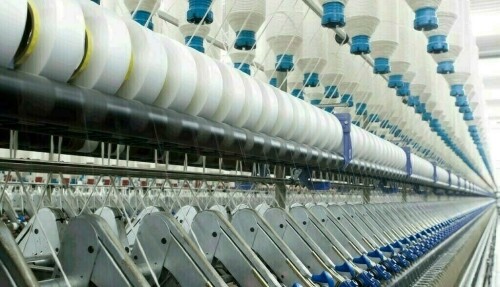Pakistan Textile Council Expresses Concern Over Export Scheme Amendments
The Pakistan Textile Council (PTC), a research and advocacy organization, has voiced its apprehension regarding recent modifications to the Export Facilitation Scheme (EFS) as communicated by the Federal Board of Revenue (FBR). The council cautions that these revisions, notably the exclusion of crucial raw materials such as cotton and yarn, could significantly impede the nation’s textile exports.
In a statement released on Saturday, the PTC articulated that the amendments announced by the FBR via SRO 1359(I)/2024, if enacted in their present state, “will severely impair Pakistan’s textile and apparel exports at a juncture when the industry is already grappling with substantial external pressures.”
“The PTC earnestly implores the Government of Pakistan to step in and halt the implementation of these amendments pending a collaborative revision that aligns with the directives of the Prime Minister’s appointed committee,” the statement conveyed.
According to the declaration, the PTC highlighted that despite the establishment of a high-ranking committee, led by Planning Minister Ahsan Iqbal, to assess and streamline the EFS through consultations with the private sector, the committee’s proposals “have been completely disregarded.”
“The newly promulgated amendments have bypassed the committee’s recommendations, failing to tackle the industry’s fundamental issues. The most detrimental element is the removal of vital raw materials, including cotton, cotton yarn, and grey cloth, from the purview of the EFS,” the PTC stated.
The council elucidated that these materials constitute the foundation of Pakistan’s textile supply chain, and their exclusion will necessitate exporters to prepay import duties and sales tax, despite their status as export-focused entities that generate essential foreign currency for the nation.
“This essentially imposes a tax on exports,” remarked Fawad Anwar, Chairman of the PTC. “It is incomprehensible that at a time when Pakistan is striving to stabilise its economy and secure foreign exchange, the government would adopt measures that complicate, rather than facilitate, the survival of exporters.”
The PTC communicated that it has presented comprehensive objections and policy recommendations to Chairman FBR, Rashid Langrial, and has officially escalated the matter to the Prime Minister’s Office, Minister for Planning, Minister for Commerce, and Minister for Finance.
The council has implored the government to promptly retract the exclusion provision and re-evaluate other restrictive clauses that could cripple the EFS framework.
Key objections raised by PTC include:
- The input utilisation period should remain at a minimum of 18 months for all EFS users, with reconciliation statements submitted according to regulations.
- Provisional authorisation should be permitted for new EFS users based on declared capacity.
- Bank guarantees should be replaced with insurance guarantees to lower compliance expenses.
- Toll manufacturing restrictions should be eased, including unrealistic 60-day limits and vendor detail requirements.
- The proposed withdrawal of intrusive physical sampling rules should be reversed.
- EFS coverage for cotton, yarn, and grey cloth should be maintained, as their exclusion was never agreed upon.
“These modifications are being introduced when Pakistan’s textile and apparel exports are already threatened by increasing global protectionism, including recent reciprocal duties imposed by the United States on Pakistani goods, which are projected to further diminish export competitiveness,” it cautioned.



Comments (0)
No comments yet. Be the first to comment!
Leave a Comment